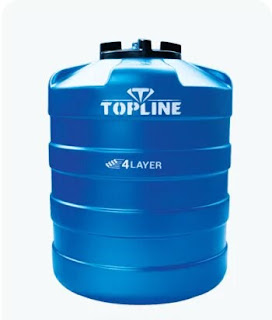Why use HDPE Pipes for industrial uses?
Agricultural and lift irrigation, submarine pipelines, desalination facilities, industrial water transportation, coal handling, chemical lines, and HDPE pipes are just some of the many industrial uses for these pipes. The popularity of HDPE pipe manufacturers in India is due to its high tensile strength, durability, and lightweight properties. To help you understand the advantages of HDPE pipes for industrial use, we've compiled a list of reasons why:
Resistance to corrosion
Metal pipes have a long history of industrial usage because of their high corrosion resistance. It was, however, a bad option due to corrosion. Water and low-temperature liquids may be transported more efficiently using HDPE pipes than through metal pipes. A variety of industrial applications in chemical and geothermal facilities may benefit from its corrosion-resistant qualities.
Chemical resistance
HDPE pipes are increasingly replacing carbon steel pipes in several sectors because of their superior chemical resistance. Fluid and gas pipe systems including gas mains, sewage mains, and fire system supply lines benefit greatly from its exceptional chemical resistance. HDPE pipes are also resistant to fungus and bacteria, making them ideal for use in sewage systems.
Resistance to water hammers
Water hammers may produce extremely high pressures in pipes if the flow rate suddenly changes. Pipes and joints might crack as a result of this. HDPE pipes, on the other hand, do not have this problem. In the long term, they'll hold up since they can endure the force of water hammers. This reduces the risk of damage.
Good weldability
Strong, homogeneous joints are formed when HDPE pipes are weld together. When compared to more typical pipe materials, these pipes offer superior weldability, making them dependable and simple to install. Welding correctly guarantees that they are leak-proof and do not need an excessive number of fittings.
Less installation costs
Economic benefits of HDPE pipes are pushing enterprises to switch to HDPE pipes for long-term usage because of the low installation costs. Horizontal directional drilling and slip lining are two low-cost techniques of installing HDPE pipelines. HDPE pipes are lightweight, therefore they don't need heavy lifting equipment during installation. This saves a lot of money in terms of both labor and setup.
Because HDPE pipes are corrosion and chemical resistant, they don't need to be serviced as often because they're less likely to leak. Long-term maintenance costs will be reduced as a result of this.
Easy handling
HDPE pipes are simple to work with because of their pliability, which eliminates the need for extra fittings. Thus, HDPE pipes may be laid even in tough terrains because of this.
HDPE has a higher flow rate than steel, cast iron, and other metal pipes because of its smoother surface. Its strong chemical resistance and non-stick surface prevent scaling and pitting, maintaining an optimum flow rate throughout the pipe's service life.
HDPE pipes are a great option for a wide range of projects. There are several industrial uses for high-quality HDPE pipes that you now understand.
Also read:- WHAT FACTORS SHOULD YOU LOOK FOR BEFORE FINALIZING A PIPE MANUFACTURER?




EPDM rubber sheets are known for their excellent weather, water resistance, ozone resistance, and chemical compatibility. They offer good physical properties and are highly durable.
ReplyDelete